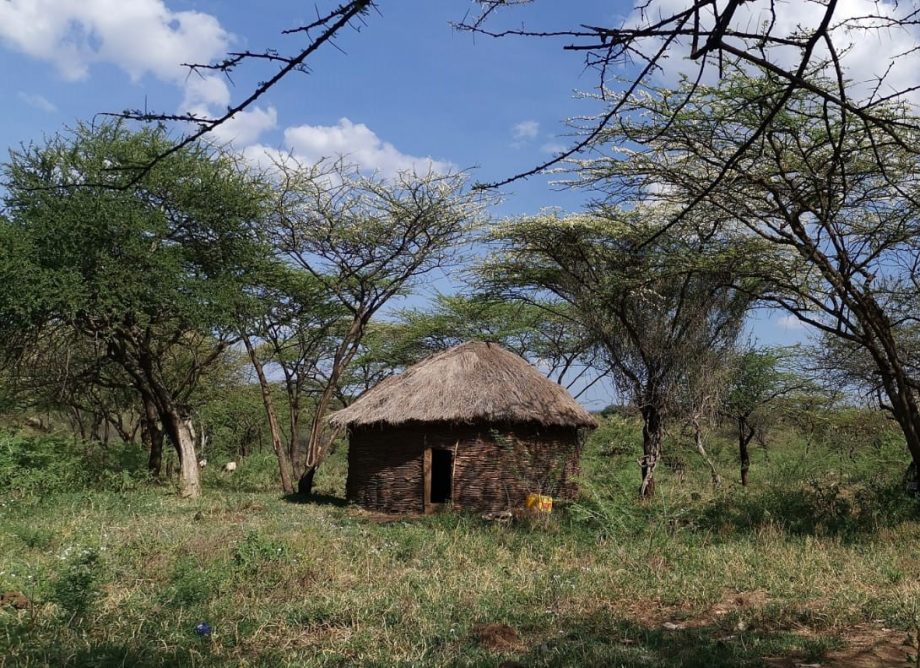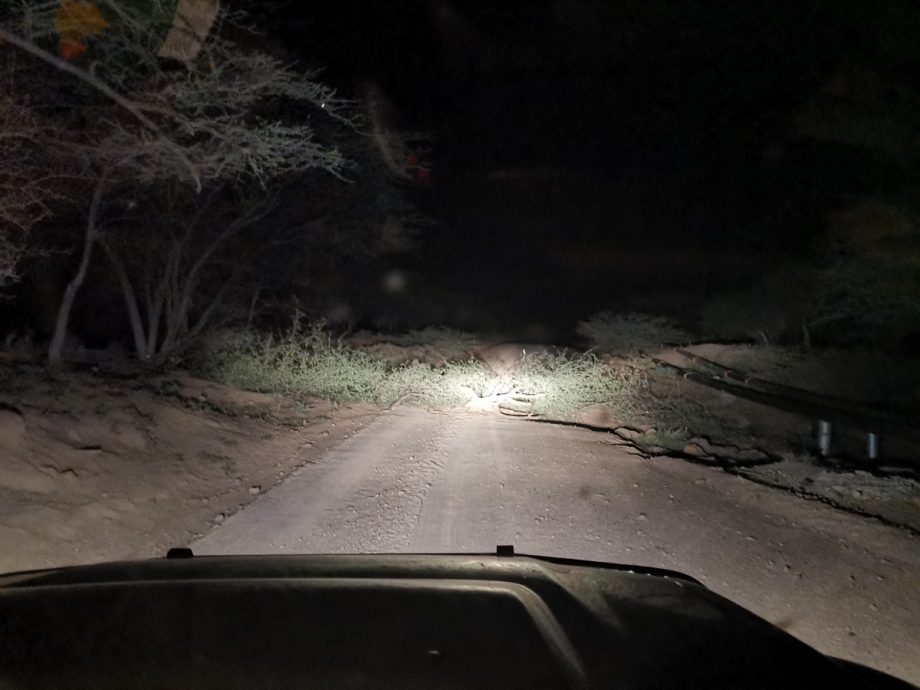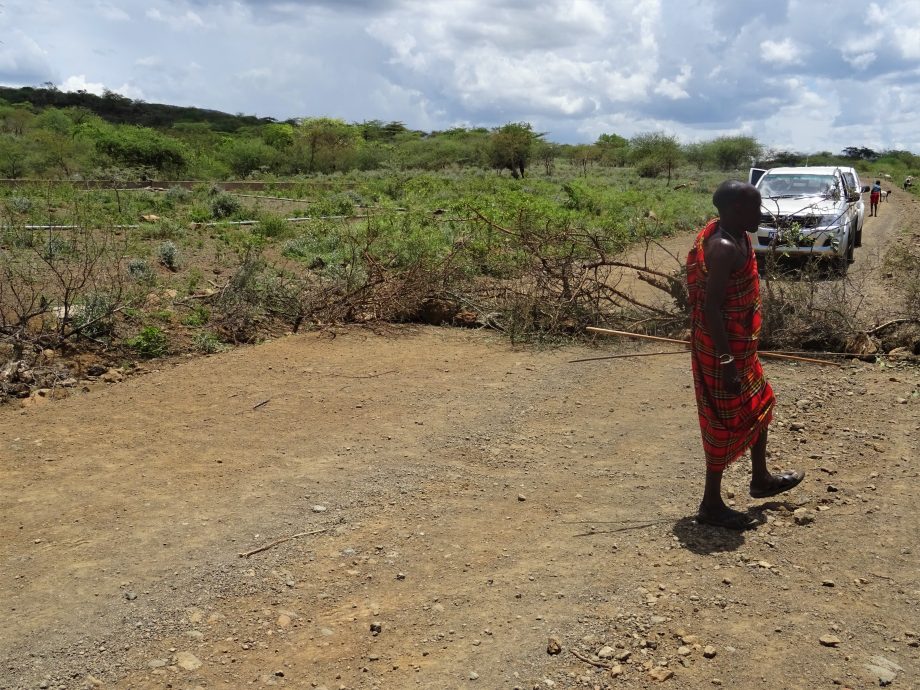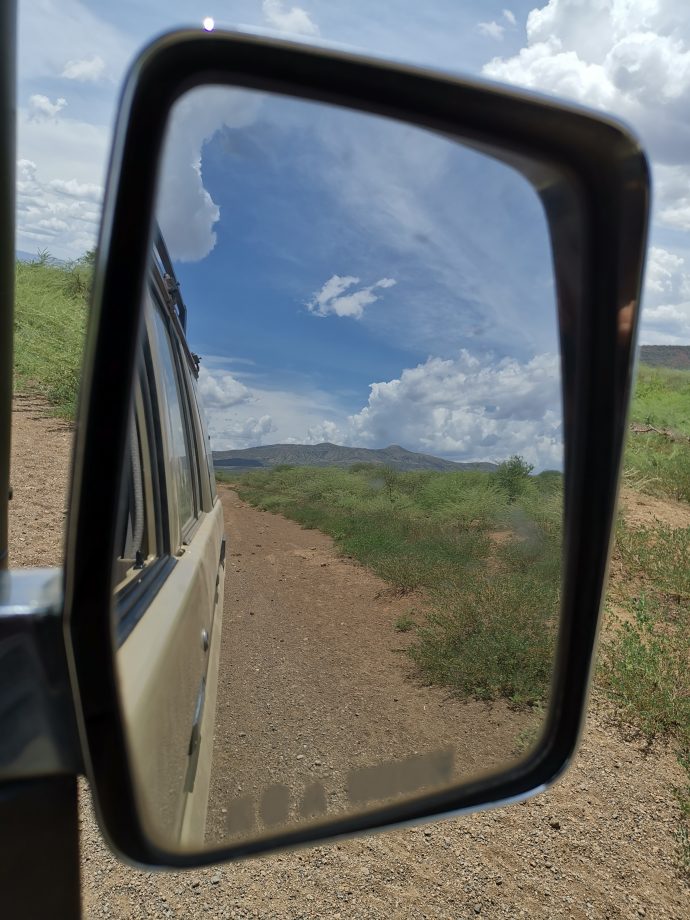The spread of ‘Corona’: from the Urban to the Rural
Impressions from Kenya
In this contribution I want to examine how rural areas were already ‘hit’ by the coronavirus without having any confirmed cases, i.e. while the virus had not really manifested itself yet, a plethora of information, (fake-)news and rumours shaped people’s actions, feelings and perceptions about it. Moreover, the government regulations to limit the spread of the coronavirus had an effect that extended far beyond the cities and soon affected rural areas as well. So far, Kenya has been spared a massive outbreak of the coronavirus like in Europe, at least until the end of March (59 confirmed cases). Nevertheless, Kenya’s cities, as access points for domestic and international travel, were initially affected by preventive measures (e.g. travel bans, home office, closing of schools) and were eventually hit by the first confirmed infections with the coronavirus. With those first cases, concerns in rural areas – rather sudden – turned into uncertainty, nervousness, hysteria or even fear, fuelled by the information coming from cities and social media. Those concerns related not only to the virus itself, but also to the possible effects on livelihoods and life in general. Therefore, I want to differ here between the coronavirus itself (SARS CoV-2) and ‘Corona’ as a more social phenomenon, a combination of impacts, processes, actions, information, perceptions and feelings surrounding the virus in its presence or absence. But let me begin chronologically:
I left for my second research phase on the 31st January, just a few days after the first infection with the coronavirus was confirmed in Germany. Arriving in Kenya, the virus couldn’t have been any farther away for me. Starting my trip in Nairobi, one could hear people talking about this new disease slowly getting hold of Europe now. There was no hysteria, just casual talks, about the virus and about how far it is away, perhaps to be compared with the situation in Europe a few weeks earlier when the coronavirus was still limited to China. After leaving the city and making my way north to Baringo County, a five-hour drive from Nairobi, ‘Corona’ almost disappeared from my mind. Here, I was doing my research on the impacts of large-scale projects on pastoral livelihoods at Mt Paka, an area that is remote even for Baringo standards. This semi-arid landscape is inhabited by Pokot pastoralists and in the last years this historically marginalized area has been targeted by Kenya’s Geothermal Development Company (GDC) for its volcanoes and their geothermal potential. While I was focussed on getting settled, only from time to time, sporadic information regarding the coronavirus trickled in online.
With the virus spreading in Europe, the discussions also started in Baringo. In the beginning, those discussions were often grounded, evaluating the virus’ potential, its spread and its danger. But others were fed by rumours and stereotypes using a rather conspiratory tone, e.g., suspecting a man-made virus. Some people heard about the relation of the coronavirus to SARS and MERS, which either makes ‘Corona’ worse per se or better (‘it is nothing new’), depending on whom you would ask. Others showed me videos of a self-proclaimed prophet from Nakuru who fused the coronavirus with the current plaque of locusts to create a doomsday prophecy. But the virus had not yet reached Kenya and many discussions were accompanied by jokes and laughter. There was no nervousness, yet.
One of the first major ‘Corona’ news in Kenya itself was the arrival of a plane from China with 239 passengers aboard on 26th of February which caused an uproar. The passengers were first blocked from entering the country, but were later released into a mandatory self-isolation. People started arguing that Kenya might not be prepared to handle an outbreak, so why would the government let people into the country who might carry the virus. But many people I talked to still had a smirk on their face, not completely convinced of any real danger.
The Kenyan Government first suspended travel to China, starting on 28th February. On March 6th, as the global number of infections surpassed the 100,000 mark, a ban of all international meetings followed to hinder an uncontrollable spread of the virus. Then on the 13th of March 2020, Kenya confirmed its first case. Only a day later, on March 14th, President Uhuru Kenyatta ordered to close schools and universities, court hearings were suspended and people were urged to work from home. Additionally, the entry to Kenya for all non-residents had been blocked. In Baringo, people started to get concerned about this coronavirus that now had hit Kenya as well. But so far, one opinion prevailed: Nairobi is far away. Somebody told me he has ‘never been to even Nakuru (the next bigger city, about 150 km away), what does something happening in Nairobi concern me?’ The sporadic tourism in the area also did not seem to be a big factor for any anxieties regarding the virus. In general, Baringo and especially Paka seem a long way from Nairobi or other urban centres, for the people and for me.

My manyatta in Paka. Source: David Greven
At this point I was already staying in my manyatta (hut) in Paka, doing my research. On some weekends, however, I retreated to Kambi ya Samaki, roughly 70 km away at the shores of Lake Baringo, to charge my devices and recharge myself. In mid-March, I decided to spend another weekend in Kambi again. Doing some errands, meeting some friends and some informants over a cold Tusker (Kenyan Beer) – as Kambi is also home to many shift workers working for GDC in Paka.
After that weekend, I started my week as usual at the livestock market in Nginyang – a small and old centre located next to the tarmac road an hour away from Paka –, to check for goat prices, listen to news and rumours and to get food for the week. My assistant and I already heard that the market would be closed at noon and would remain closed for the next 30 days due to ‘Corona’. ‘That will affect the livestock prices’ I thought while walking with a friend who just managed to get all goats for his dowry, realizing that ‘Corona’, especially the impacts of anti-measures against the spread of the virus, had now even reached here, in a very short time. From that time on, I started to realize that several people along the highway held their hands over their mouths when talking to my assistant, but then deemed it safe after my assistant told them we are staying up in Paka. In Paka, people were as welcoming as usual. People certainly knew about the coronavirus, but were still hopeful that it would not come to the area.
One day later, news of a potential case of infection in Kambi ya Samaki spread rapidly, within the centres as well as in the rural places. Now you could feel nervousness in almost every conversation. Not because of me, since most people knew I had been around for a while, but because of how close the virus had come. One major concern for the people at Paka were the shift workers coming in to work at the GDC sites in the area. They usually stay in Kambi ya Samaki until they return for work. Additionally, food, water and diesel are transported to company sites. Even though the case in Kambi was not confirmed yet, people started discussing the potential danger the virus could become. I checked with friends in Kambi who told me that the potentially infected person returned from Dubai and self-isolated himself before getting sick. The day he left his self-isolation, I was already back in Paka.
While contemplating about how to deal with the situation, I got a message from a friend close to the German Embassy: “If you want to leave the country, you have to leave it as soon as possible. Flights cannot be guaranteed for next week.” Now, should I leave? Would that even make sense? Europe as epicentre of the coronavirus didn’t seem necessarily safer than the rural areas of Baringo County. If I would stay, I could continue my research, now that I had settled in and found my rhythm. ‘Corona’ would probably also add a new angle to my own research. But the problem of me being quite mobile, and sometimes being ‘forced’ to return to Nairobi or Nakuru (e.g. to extend my visa), entailed the risk of ‘catching’ something. I knew my friends, neighbours and others would probably still welcome me, but I should not risk it. Many people I spent time with belong to the so-called ‘risk category’ because of age and the area lacks the capacity for medical treatment in case of a virus’ spread. Even if I would decide to stay, the spread of the coronavirus could still reach Baringo as the example of Kambi showed, and then I would have been forced to reduce or even stop my research activities.

People prepared roadblocks in Paka at night so that no vehicle will pass in the morning. Source: David Greven
When I returned to my place in Paka in the evening, I found the roads blocked. People said no ‘outsider’ was supposed to come in. But when they recognized me, they opened the road for me ‘to go to my home’. Again, I felt welcomed and trusted. The people explained to me that they will block the road so that the workers from Kambi cannot pass. ‘We don’t want this disease here!’ Instead of going home, I proceeded up to the mountain to get some network and to discuss with some of my colleagues about our options. My travel agent told me that there were not many flights left, and that everything from next week would remain uncertain. Thus, I finally decided to leave. I didn’t want to disappoint my friends’ trust by potentially exposing them to a risk, and I didn’t want to get stuck in case the situation escalated in any way (e.g. sudden disapproval, coronavirus outbreak, medical emergency, etc.). I packed my stuff and was ready to leave after explaining my decision and saying my goodbyes.

Blocking the road amid ‘Corona’. Source: David Greven
After leaving my host family and my little homestead, my assistant and I dropped down the mountain until we reached the first roadblock and noticed an ongoing baraza (public meeting) attended by GDC and local elders. An agitated discussion had started which circled around the opening or closing of the road. The area chief and community liaisons urged the community to open the road. Nonetheless, the elders, determined to risk repercussions rather than to succumb to a fatal disease, remained adamant in their decision not to let anyone else in again. They quoted Uhuru Kenyatta’s speech, in which he banned all gatherings, and wondered why the workers were still ‘gathering’, i.e. working. The discussion moved on, no one wanted to give in. People are well aware of the lacking medicinal treatment facilities in the area, and therefore wanted to stop outsiders to come in. The negotiation was based on a variety of sources, i.e. rumours, radio, news, prophecies. Even I was suddenly included in the discussion when news of my departure had spread. My decision to leave was inserted into the discussion as an “agreement to leave” to serve as a point. Something they should do, too. At the end, there was no solution and the road remained blocked for the day.

Leaving Paka. Source: David Greven
The next day, I left to Nairobi and took one of the remaining flights on the weekend back to Germany. The potential spread of the coronavirus in Kambi ya Samaki had sparked a whole new development on how people perceived the danger in the area. Even as the information of a negative test result was shared, people now remained nervous. The Kenyan government’s measures against the spread of the virus quickly reached rural areas as well. At the beginning the coronavirus was just another story. With the arrival of an abundant and unfiltered mixture of reliable and unreliable information, rational informed actions became increasingly difficult, but ‘Corona’ became very real in rural Baringo. Fear and uncertainty led to cases like Kambi, where not even a negative test result could reduce suspicion. Since many people in the area are dependent on informal work, compliance with government regulations could make it hard if not impossible to secure an income, especially after the introduction of a curfew. The enforcement of such rules may be difficult in many parts of Baringo. But now, I’ve heard that the livestock market in Nginyang was closed by police under the usage of teargas to disperse people and to close shops and markets, just after I left. While I think I made the right decision, I am still concerned about what will happen to my friends and informants when the coronavirus actually hits the area, now that ‘Corona is everywhere’.
Written on March 30, 2020.
David Greven is currently doing his PhD in Anthropology at the University of Cologne, within the CRC 228 “Future Rural Africa”. For his research on large scale development projects and their infrastructure on pastoral livelihoods, he started his second research phase in Paka, Kenya, in the beginning of February. David can be contacted via david.greven@uni-koeln.de
References































